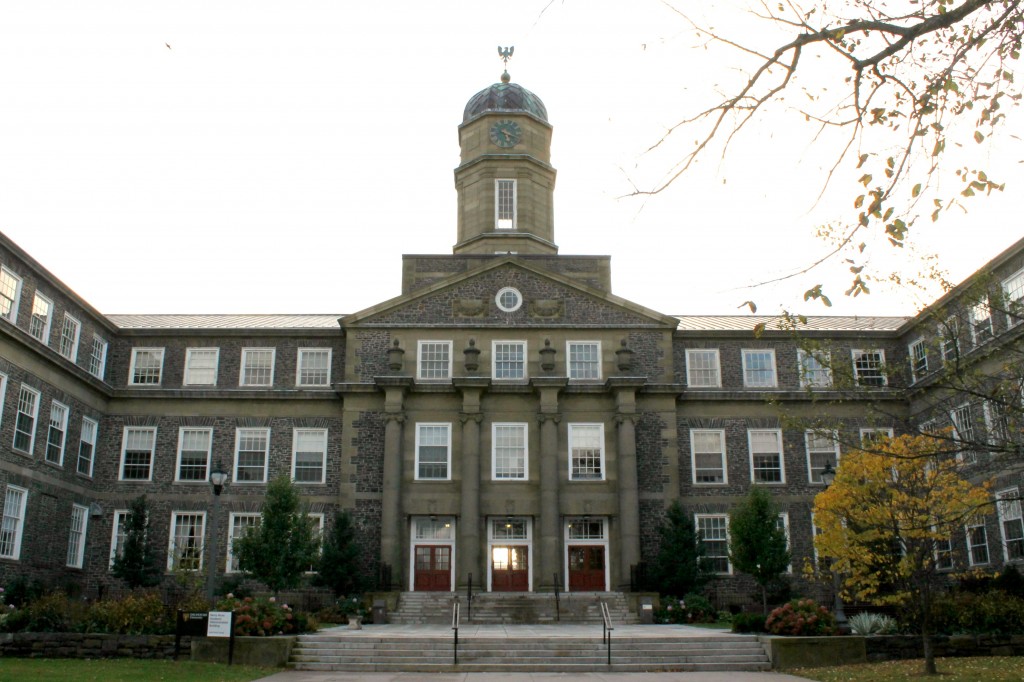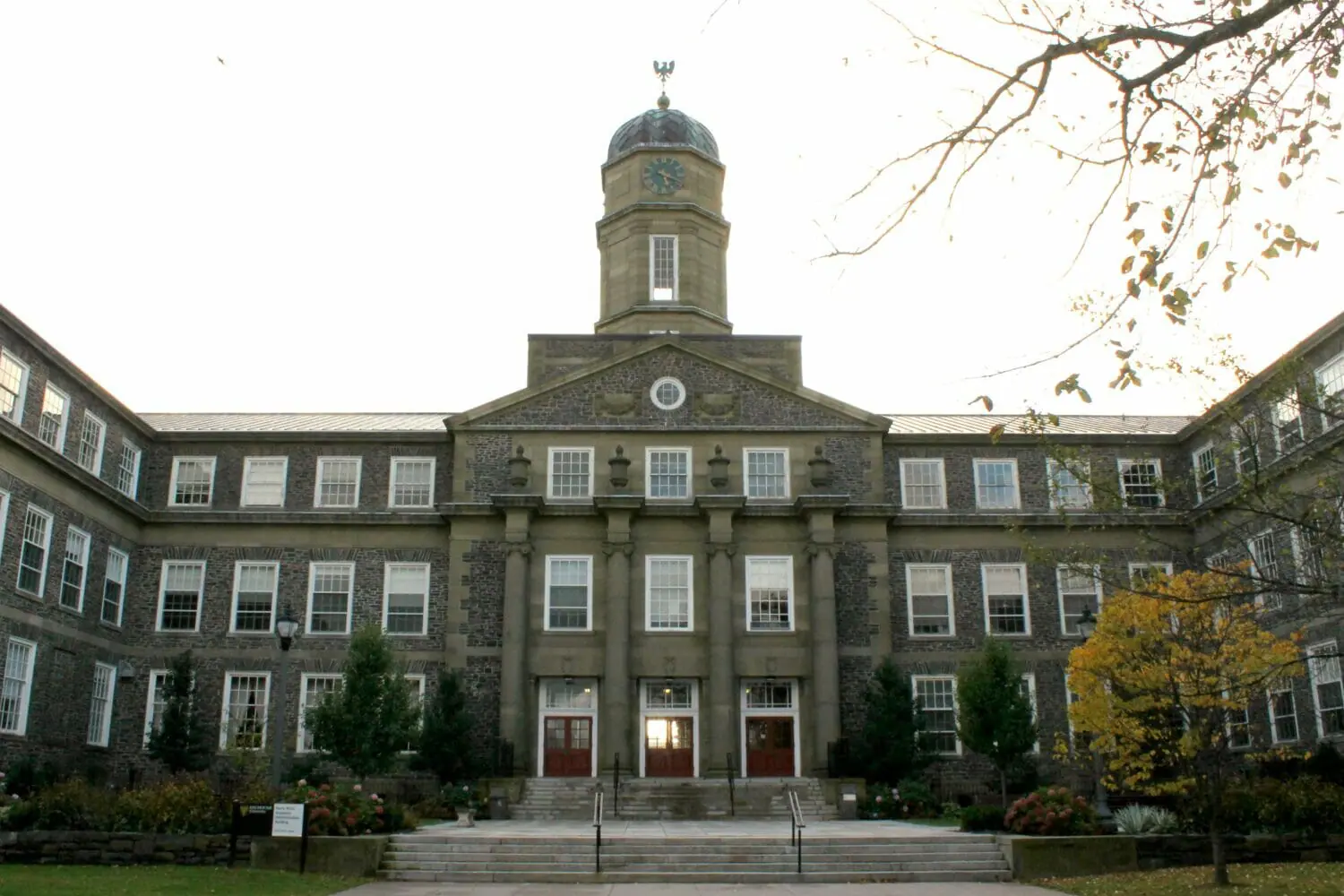
The Gazette asked some university VIPs a few questions about the new president’s time at Dalhousie so far. Here’s how they answered.
WB: William Barker, former president of the University of King’s College, current Dal professor
JH:John Hutton, Dalhousie Student Union rep on the board of governors
DBT: Donna Bourne-Tyson, university librarian
Dalhousie Gazette: How have president Florizone’s first six months in office been?
WB: Six months in the world of the university is a very short time. I have found president Florizone highly responsive to particular issues, eager to understand Dalhousie and very personable. At this point, one can’t ask for more. But of course more will soon be expected.
JH: President Florizone has had a good six months. His 100 Days of Listening project was a way to systematically do broad consultations, meet the people who make up Dalhousie and see how everything works (or doesn’t). From what I observe, morale is up across campus and people are seeing opportunities they didn’t this time last year. At the board of governors’ level, he’s encouraged important discussions such as setting the right balance between debt and new buildings, and applying ethical considerations to Dal’s investments. These are encouraging steps.
DBT: The first six months have been extremely successful, in my opinion. He has been visible, approachable and open as he collected information for his 100 Days report. He attended two meetings with Dal libraries staff during his first 100 days, which was very much appreciated by the team. I have worked closely with Florizone on the Dal libraries budget and he has proven to be a huge supporter of the libraries and our users. I was able to get his feedback on the Dal libraries strategic alignment plan shortly after he arrived and we’ve included his endorsement in the plan.
DG: What did you take away from the 100 Days report?
WB: The 100 Days report is an impressive summary of the current state of Dalhousie. I doubt most people will have time to read the whole thing (I read it, but if everyone did you could shut the whole university down for half a day). Nevertheless it is a testimony of president Florizone’s desire to assess our situation and to figure out, as quickly as possible, a way to move Dalhousie forward. It stops short from being a strategic plan. Even so, his various priorities are already being interpreted by faculty members, rather like tea leaves.
JH: A few takeaways from my first reading of the report: a) Reducing the number of programs Dal offers will be a discussion to have in the near future—phrased more nicely as “determining the right number of programs.” b) Correctly, student retention is flagged as an issue because first-year students at Dal are less likely to stay than students in other U15 universities. c) Florizone describes Dal students as “conscientious achievers,” which is a label that I like. d) The faculty and staff pension plan will be a major factor in labour relations.
DBT: President Florizone has covered an impressive amount in his first 100 days at Dal. He has made a real effort to reach as many people as possible. Listening is the most important thing one can do when coming into a leadership role of this magnitude, and the biggest takeaway from the 100 Days report is that Florizone has obviously been listening. I appreciated the breadth of the report; it is very informative and will serve as an excellent departure point for future planning. It was rewarding to see Dal libraries noted as a partner in academic innovation in Section 2.
DG: What separates him from his predecessor, Tom Traves?
WB: Florizone must necessarily follow his own path, and over time we will find out what that path is. All presidents have to be out in front, have to engage. It is a relentless demand, and it is hard on someone with a family and young children. The 100 Days formalized that public approach, but it has to continue.
JH: Florizone’s open-minded approach is refreshing. He welcomed a discussion at the investment committee about ethical considerations, which most university presidents would shy away from, and Traves would have belittled. Florizone seems to take students’ concerns seriously and listens well, while Traves could be patronizing to students at board meetings. Florizone mentions in the 100 Days eport that Dal needs to be seen as “less aloof and more involved in the community,” which is a reputation that may have built up over Traves’ 18-year term.
DBT: This is a difficult question, because every leader brings a unique combination of strengths and expertise to a role. Dalhousie has been very fortunate to have two excellent presidents in succession. One apparent difference is that Florizone is using social media more, staying active on both Twitter and Tumblr. These technologies were just coming into their own as Traves was preparing to retire, so I see the increased use of social media by the president of a U15 institution as a notable difference in these early days.
DG: What hurdles will he face in the coming months and years?
WB: Presidents do not have an easy job. Universities are complex institutions, and, as I learned in the much smaller world of King’s, everyone knows how to run one, from board members to senior faculty members to first-year students. I want president Florizone to continue to understand the good that we do here at Dalhousie, to embrace it and to enhance it. His main effort will have to be with teaching and research. All of the other challenges—retention, reputation, funding, gifts—are tied to these two pillars of the modern university.
JH: The next six months to a year will tell us a lot more about Florizone. He will have to produce his first university budget, and will face contract negotiations with both the Dal Faculty Association and the union representing part-time faculty and teaching assistants (CUPE 3912). Under former president Tom Traves, the relations between administration and unions were hostile and often saw the administration pit students against their professors. Hopefully that won’t happen. Other challenges include probable budget cuts from the provincial government, better servicing for international students and keeping the university debt manageable despite numerous new buildings on the docket.
DBT: Universities are complex organizations and we operate in a rapidly evolving and competitive environment. In the Canadian post-secondary education sector, we are all facing shrinking budgets, so this is a challenge we will face together in the coming months and years. No doubt there will be other hurdles. The positive relationships that Florizone has developed across campus and in the broader community in the first six months will serve him and Dalhousie very well.


Recent Comments